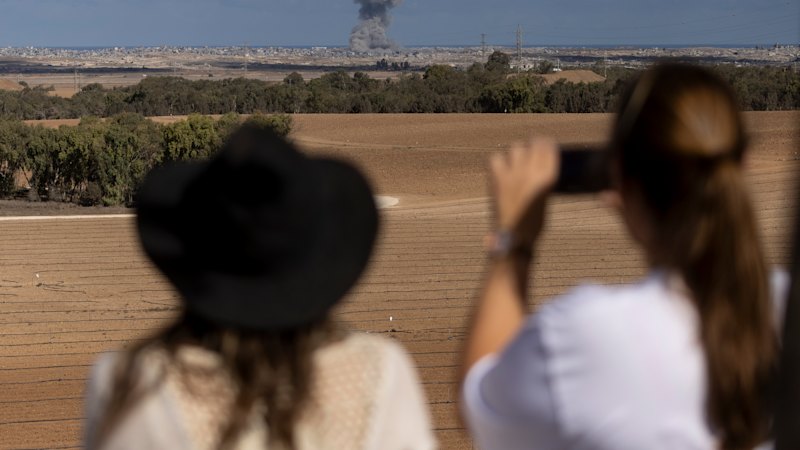
Peace negotiations between Israel and Hamas are ongoing at the Red Sea resort of Sharm el-Sheikh, Egypt, marking a significant effort to resolve a conflict that has resulted in substantial loss of life. The talks resumed on Tuesday, coinciding with the two-year anniversary of Hamas’s surprise attack on Israel, which initiated a war that has since claimed tens of thousands of Palestinian lives in the Gaza Strip.
The second day of indirect discussions is focused on achieving a comprehensive ceasefire. Khalil al-Hayya, a senior official with Hamas, stated in an interview with Egypt’s Qahera TV that the group is seeking guarantees for a lasting ceasefire as part of any agreement regarding the return of the remaining 48 hostages, approximately 20 of whom are believed to be alive. This appearance marked al-Hayya’s first public engagement since an Israeli airstrike in Qatar last month that killed six individuals, including his son and office manager.
Israeli Prime Minister Benjamin Netanyahu has expressed acceptance of a proposal put forth by the Trump administration, which includes the immediate release of hostages, placing Gaza under international governance, and disarming Hamas—conditions that the militant group has yet to accept. Netanyahu’s office indicated a “cautiously optimistic” stance, framing the discussions as technical negotiations over a plan both parties have tentatively agreed upon.
The proposal has garnered broad international support. Former President Donald Trump noted this week that he sees a “really good chance” of achieving a lasting peace agreement. In a sign of increasing momentum, Qatar’s Prime Minister Sheikh Mohammed bin Abdulrahman Al Thani plans to arrive in Egypt on Wednesday to further engage in the negotiations. Additionally, key figures from the Trump administration, including Middle East envoy Steve Witkoff and Jared Kushner, are expected to participate in the discussions alongside Netanyahu’s top advisor, Ron Dermer.
The proposed plan outlines a scenario where Israel would withdraw its military forces from Gaza contingent upon the disarmament of Hamas, with an international security force deployed to oversee the transition. The territory would come under international governance, with Trump and the former UK Prime Minister overseeing the arrangements.
Hamas reiterated its longstanding demands for a full Israeli withdrawal from Gaza and a lasting ceasefire but did not explicitly address disarmament in its recent statements. The conflict began on October 7, 2023, when Hamas militants infiltrated southern Israel, resulting in the deaths of approximately 1,200 people, primarily civilians, and the abduction of 251 individuals. While many hostages have been released through ceasefires or negotiations, the conflict has had devastating effects, with Gaza’s Health Ministry reporting at least 67,160 Palestinian fatalities and nearly 170,000 wounded.
On the ground, the situation remains tense. Thousands of Israelis gathered on Tuesday to commemorate the victims of the attack two years ago, paying tribute to their loved ones who were killed or abducted. Reports indicate that Israeli airstrikes continued into early Tuesday in Gaza City, although there were no immediate reports of casualties from this latest round of attacks.
As the peace talks progress in Sharm el-Sheikh, the international community watches closely, hoping for a resolution to a conflict that has caused immense suffering and instability in the region.







